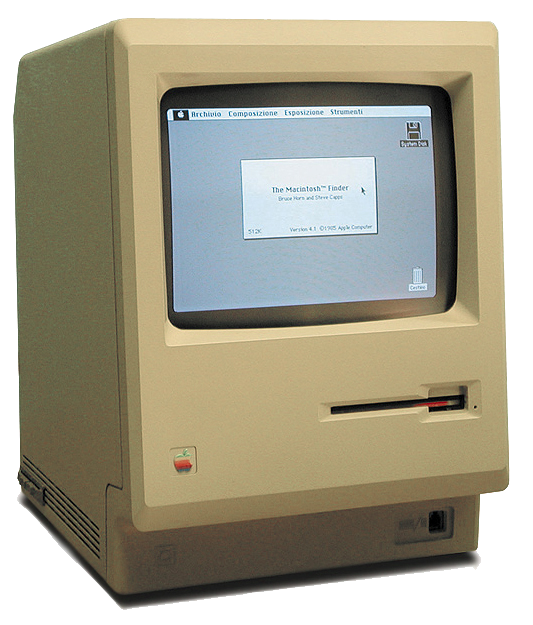How Old Are You?
- If you’re 13, you’re the same age as Michael Jackson the year he and the rest of the Jackson 5 had four number one hits, including “ABC.”
- If you’re 14, you’re the same age as Miley Cyrus when her debut album “Hannah Montana” went triple platinum.
- If you’re 15, you’re the same age as Tenzin Gyatso when he was enthroned as Tibet’s 14th (and current) Dalai Lama.
- If you’re 16, you’re the same age as Neil Patrick Harris when Doogie Howser, M.D. first aired.
- If you’re 17, you’re the same age as Martina Hingis when she held the No.1 ranking in both singles and doubles women’s tennis.
- If you’re 18, you’re the same age as RIngo Starr when The Beatles released “Love Me Do.”
- If you’re 19, you’re the same age as John Tyler Hammons in 2008 when he was elected mayor of Muskogee, Oklahoma, a city of 38,000.
- If you’re 20, you’re the same age as Bill Gates when he founded Micro-soft in 1975 (the hyphen was dropped shortly after).
- If you’re 21, you’re the same age as Mick Jagger when he recorded “(I Can’t Get No) Satisfaction” with the Rolling Stones.
- If you’re 22, you’re the same age as Jayde Nicole, the 2008 Playboy Playmate of the Year.
- If you’re 23, you’re the same age as Tiger Woods when he won his last four starts, including the PGA championship, and finished the season with eight wins—a feat not achieved in the past 25 years.
- If you’re 24, you’re the same age as Lee Harvey Oswald when he assassinated John F. Kennedy.
- If you’re 25, you’re the same age as Steve Jobs when he and Steve Wozniak released the Apple II computer.
- If you’re 26, you’re the same age as Albert Einstein when he published his paper stating that e=mc2.
- If you’re 27, you’re the same age as Kurt Cobain, lead singer of Nirvana, when he killed himself.
- If you’re 28, you’re the same age as Julie Andrews when she appeared in "Mary Poppins."
- If you’re 29, you’re the same age as Olivia Newton-John when she played Sandy in “Grease.”
- If you’re 30, you’re the same age as Schubert when he died of typhoid fever (after writing nine symphonies and hundreds of other pieces of music).
- If you’re 31, you’re the same age as John Lennon when he wrote “Imagine.”
- If you’re 32, you’re the same age as Thomas Edison when he invented the electric light bulb.
- If you’re 33, you’re the same age as Matt Groening when his first series of shorts called “The Simpsons” debuted on The Tracy Ullman Show.
- If you’re 34, you’re the same age as Harper Lee when her To Kill a Mockingbird was first published.
- If you’re 35, you’re the same age as Harrison Ford when he appeared in the first “Star Wars” movie.
- If you’re 36, you’re the same age as Ann Bancroft when she played Mrs. Robinson in “The Graduate.”
- If you’re 37, you’re the same age as Frances Crick when he, James D. Watson, and Maurice Wilkins co-discovered the double helix structure of DNA.
- If you’re 38, you’re the same age as (Sherpa) Tenzing Norgay when he and Sir Edmund Hillary became the first people known to have reached the summit of Mount Everest.
- If you’re 39, you’re the same age as Martin Luther King, Jr., when he was assassinated.
- If you’re 40, you’re the same age as Isabel Allende when her first novel, The House of the Spirits (La casa de los espiritus), was published.
- If you’re 41, you’re the same age as Ernest Hemingway when he published For Whom the Bell Tolls.
- If you’re 42, you’re the same age as Elvis Presley when he died.
- If you’re 43, you’re the same age as Tony Blair when he became Prime Minister of the United Kingdom
- If you’re 44, you’re the same age as Jerry Seinfeld when “Seinfeld” debuted its final episode.
- If you’re 45, you’re the same age as Nelson Mandela when he was sentenced to life imprisonment in 1964 for his involvement with the African National Congress.
- If you’re 46, you’re the same age as O.J. Simpson when his ex-wife Nicole Brown Simpson and her friend Ronald Goldman were murdered.
- If you’re 47, you’re the same age as Barack Obama when he won the nomination for the Democratic candidacy for the U.S. presidency in August 2008.
- If you’re 48, you’re the same age as Jeannie Longo, the greatest female cyclist of all time, when she won her 14th French Road Race.
- If you’re 49, you’re the same age as Gandhi when he led his first protests against the British in India in 1918.
- If you’re 50, you’re the same age as Charles Darwin when he published The Origin of Species, the first time his theory of evolution appeared in print.
- If you’re 61, you’re the same age as Abraham Lincoln when he was elected president.





